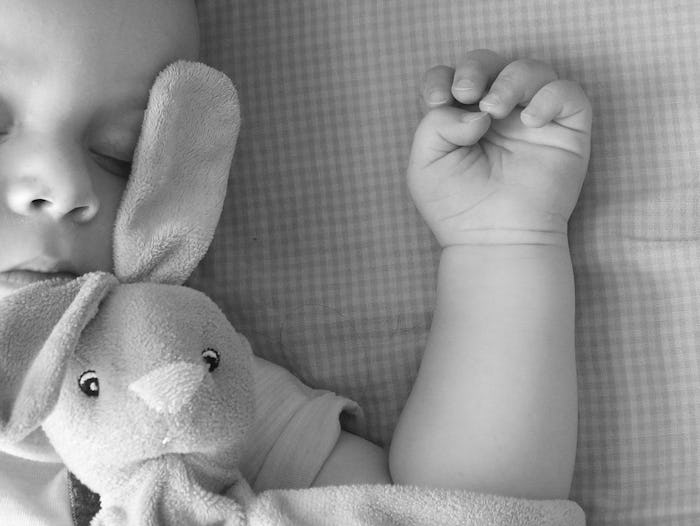Life
Turns Out, Co-Sleeping Can Help Moms Suffering From Postpartum Depression
There are many symptoms that could raise a flag that a mother is experiencing postpartum depression (PPD), one of those being sleeping problems. Since lack of sleep is such a prevalent occurrence in the first few years of parenthood, making adjustments to achieve better sleep could help moms struggling to manage their PPD. Although it may not seem like the obvious answer, there are ways co-sleeping helps your PPD, since having your baby nearby at night makes certain things a lot easier.
Although living with PPD requires professional medical attention to be managed properly, there are extra measures you can take at home to help make each day a little easier. Not surprisingly, making sure you are getting enough sleep is one home remedy that goes a long way. As Mayo Clinic suggested, maintaining adequate rest or taking naps when possible are at-home ways to add to your treatment plan. Choosing to co-sleep, which according to the website for Dr. Sears means having your baby sleep near the adult bed, is a beneficial way to get the sleep you need to help with your postpartum depression.
To understand how this practice can help your PPD, consider these five reasons to give co-sleeping a try:
1You Can Stay In Bed
Even though you may not be sleeping, staying in bed is more restful than getting up multiple times. As Pregnancy & Newborn magazine pointed out, a baby's sleep patterns are unpredictable for months, causing parents to wake when baby wakes. Having your baby at arm's reach means you won't be climbing in and out of your bed to comfort your little one when she cries out.
2You Sync Up
Having your little one nearby when sleeping may actually cause you both to wake up less often. According to Dr. Sears, mothers and babies sync their sleep patterns when co-sleeping, meaning although one or the other may stir, neither of the pair wakes up. The more sleep you can get, the more it can help your PPD.
3Breastfeeding Is More Convenient
One of the biggest conveniences of co-sleeping is having the baby right by your side when she's ready to nurse, as What To Expect's website pointed out. Breastfeeding can be a special bonding time for mother and child, which can help with PPD since difficulty bonding with baby is a symptom of postpartum depression, as Mayo Clinic reported.
4Lowers Anxiety
There are plenty of things to feel anxious about when becoming a parent, and extra anxiety can add to the feelings of postpartum depression. Co-sleeping provides you with the comfort of knowing your baby is close, should you need to help them or monitor their sleep, as The Natural Child Project's website pointed out. This can lower anxieties about your baby being in destress while in another room, without your vigilance.
5Your Baby Is Happier
Having a baby who is unhappy at night can make dealing with PPD more difficult. As James J. McKenna, director of the Mother-Baby Behavioral Sleep Laboratory at the University of Notre Dame told the website for Fox News, babies are happier and more psychologically stable when co-sleeping. Having the assurance that your baby is happy, gives you one less thing to stress about.
